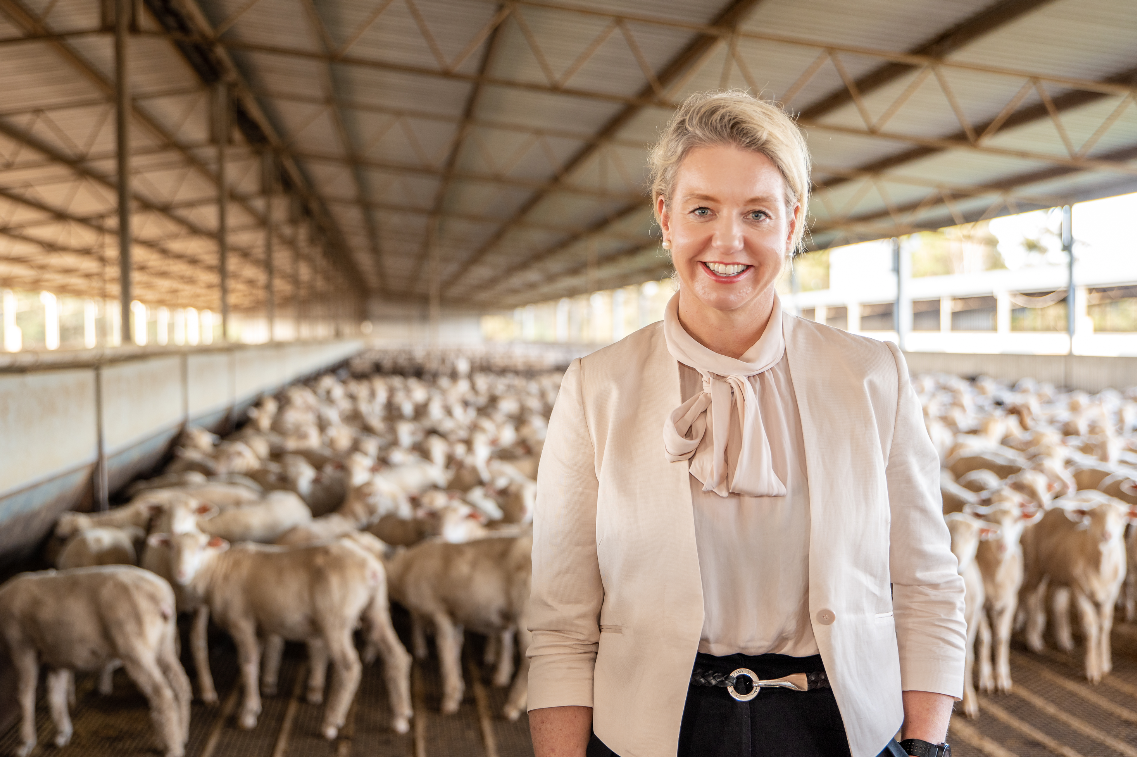On the back of a successful Federal election for the Government, Minister Bridget McKenzie opted to take the reins of the Agriculture portfolio and work to strengthen and support regional Australia. Minister McKenzie was born and raised in regional Australia, with a familial connection to the high-country that spans multiple generations.
- Tell us why you chose to pursue a career in politics.
To address the inequality between rural and urban Australia. To stand up and be proud of who I am and where I came from. To fight for strong, prosperous, safe and sustainable regions and to ensure regional centres thrive.
- You are the first female Federal Agriculture Minister, how important is this to you and why?
I’ve had a lot of women in agribusiness tell me how exciting it is for them to see a woman in the role, but I don’t use that lens myself. There have always been women leaders in agriculture, and there always will be. My focus is on being Agriculture Minister and on our industries and regional communities. I have a strong family background in agriculture—the first generation born off the farm. You can’t live in regional Australia and not appreciate how important the role of agriculture is to our nation. It’s a great honour to serve in this role.
- What are the top three priorities that you would like to achieve in your new Ministerial role?
I want to see Australian agriculture meet its goal of growing from $60 billion a year to a $100 billion industry by 2030. A key part of this is protecting Australia’s biosecurity and our clean and green status and increasing access to foreign markets to ensure a premium price for our agricultural produce. I’m here to represent—my style is to work with industry to hear their challenges and opportunities and work together on solutions. I will prioritise what is important to real agribusinesses like access to labour, the social licence to farm, and tackling the rise of animal activists who are disrupting our regional communities.
- What is the biggest agricultural challenge facing Australia? What do you think needs to be done to solve it?
Water access and affordability has been a recurring theme during my visits to agribusinesses in the regions during my first weeks in the role.
Another is access to an appropriate workforce, and getting the right skills in the right place at the right time. Biosecurity cannot be ignored, with the volume of cargo entering Australia expected to double between 2015 and 2030. Our sector’s entire premise is its pest-free status, and it’s under threat as we see increasing pest and disease issues. The government has delivered significant new funding to ensure the biosecurity system can work smarter into the future.
Another challenge is retaining young people in the regions and providing educational opportunities. We must ensure that our young people can be brought back into agricultural industries for us to go forward. We need the research and development system delivering back to producers, right through the supply chain.
- Do you see the development of strong regional cities as important to the future of agriculture in Australia?
Yes! Our nation needs sustainable and prosperous regions just as much as it needs thriving cities. Regions are not just necessary to the rest of the economy, as some would argue, but key drivers of the modern Australian economy. Regional cities are invaluable to our agricultural industries, and vice versa. Agriculture employs more than 300,000 Australians directly—many in the regions—and supports many more jobs in related industries such as transport companies, rural supplies businesses, stock and station agents and the food processing sector. Through value-adding, agriculture can deliver a more profitable commodity and regional jobs, especially given we export around 70 per cent of our agricultural production. Agriculture provides the employment opportunities and supports the small businesses that keep our country towns ticking.
- How will your portfolio support the needs of agriculture businesses based in regional cities?
The Government will continue to support agribusinesses by putting in the policies and programs to build resilience in agriculture and deliver at the farmgate—rewarding farmers for their work with fairer returns. Agriculture is a sector that can have fluctuations year in, year out, depending on seasonal conditions, terms to trade or unexpected economic events. The government wants to ensure farmers have the tools to build resilience and boost productivity. A focus will be better access to premium overseas markets and expanding into emerging markets, ultimately delivering better prices for farmers.
We have $1.1 billion worth of investment every year into rural research and development through R&D corporations and other programs. We also look forward to innovations in digital connectivity, which really allow regional city based agribusinesses to manage their farm remotely and connect from the farm to the city with the same quality internet as Melbourne or Sydney.
- As a Senate Representative for Victoria, tell us what you love about your home state.
I have a long attachment to Victoria. I was born in Alexandra and raised in Benalla. My family were high-country cattleman up in the hills near Omeo from the 1850s. Victorians are warm, hard-working and industrious. We have wonderful multicultural communities. Victoria was built on gold and on the sheep’s back, horticulture and the manufacturing sector. Now, the coalmining areas of the La Trobe Valley represent significant economic power, forestry remains an important contributor the economy and the dairy remains our largest agricultural industry, including significant exports. Victoria is also beautiful. It’s a privilege to travel around the state—from the snow to iconic beaches and beautiful wine regions—Victoria is rich with diversity and is continuing to grow. It is my life’s work to represent this great state.
